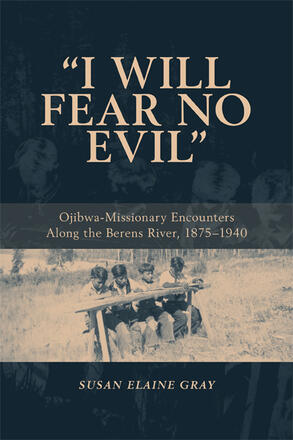
I Will Fear No Evil
Ojibwa-Missionary Encounters Along the Berens River, 1875-1940
Description
The history of Christian missions in Canada has traditionally been told only from the point of view of the missionaries, and not those they were attempting to convert. In "I Will Fear No Evil", Susan Gray offers a new perspective on missionary-aboriginal encounters between the Berens River Ojibwa and Methodist and Catholic missionaries between 1875 and 1940. Supplementing her historical research with conversations and interviews with Berens River elders, Gray explores the ways in which Christian beliefs have become incorporated into the traditional Ojibwa worldview.
The Ojibwa were active participants in these missionary encounters. They accepted those missionaries who treated them with sensitivity and respect and integrated Christian beliefs and practices into their established belief system. Today, a blend of Christian and Ojibwa ideas is still interwoven in the lives of Berens River residents, with both traditions holding meaning and sincerity. Their uniquely adaptive religion sheds new light on our understanding of cultural contact and conversion, placing the indigenous experience of these events at centre stage.
Awards
- Winner, Association for Manitoba Archives Manitoba Day Award 2006
- Winner, Margaret McWilliams Awards (Manitoba Historical Society) - Scholarly History category 2006
- Winner, Manitoba Historical Society Margaret McWilliams Medal in Scholarly History 2006
Reviews
The great strength of this book is that it presents post-contact Anishinabe philosophy-in-action as a cultural product in its own right—not as a hastily constructed bulwark against the deprivations of colonialism. Further, Gray casts off clichés about Native cultures, preferring to offer specific, meaningful assertions.
—Catherine Murton Stoehr, The Canadian Historical Review
The great strength of this book is that it presents post-contact Anishinabe philosophy–in–action as a cultural product in its own right—not as a hastily constructed bulwark against the deprivations of colonialism. Further, Gray casts off clichés about Native cultures, preferring to offer specific, meaningful assertions.
—Catherine Murton Stoehr, The Canadian Historical Review